11 Rude Habits People With Old-Fashioned Manners Avoid When Ordering At Restaurants
If someone does any of these rude habits in front of you, you might want to run for the hills.
 RossHelen / Shutterstock
RossHelen / Shutterstock The art of polite restaurant etiquette seems to have been forgotten today in an age where fast-paced service is valued more. Yet, those with old-fashioned manners still hold onto those good old days when a higher standard of courtesy was given to service staff. These individuals understood that dining out was more about a shared experience where there was mutual respect between patrons and employees.
While some habits may seem outdated to modern diners, people with classic manners avoid behaviors that come off as demanding, dismissive, or even disrespectful. Whether it's refraining from snapping at servers or waiting respectfully for attention, these seemingly small actions speak volumes about one's character.
Here are 11 rude habits people with old-fashioned manners avoid when ordering at restaurants
1. Snapping fingers or waving to get attention
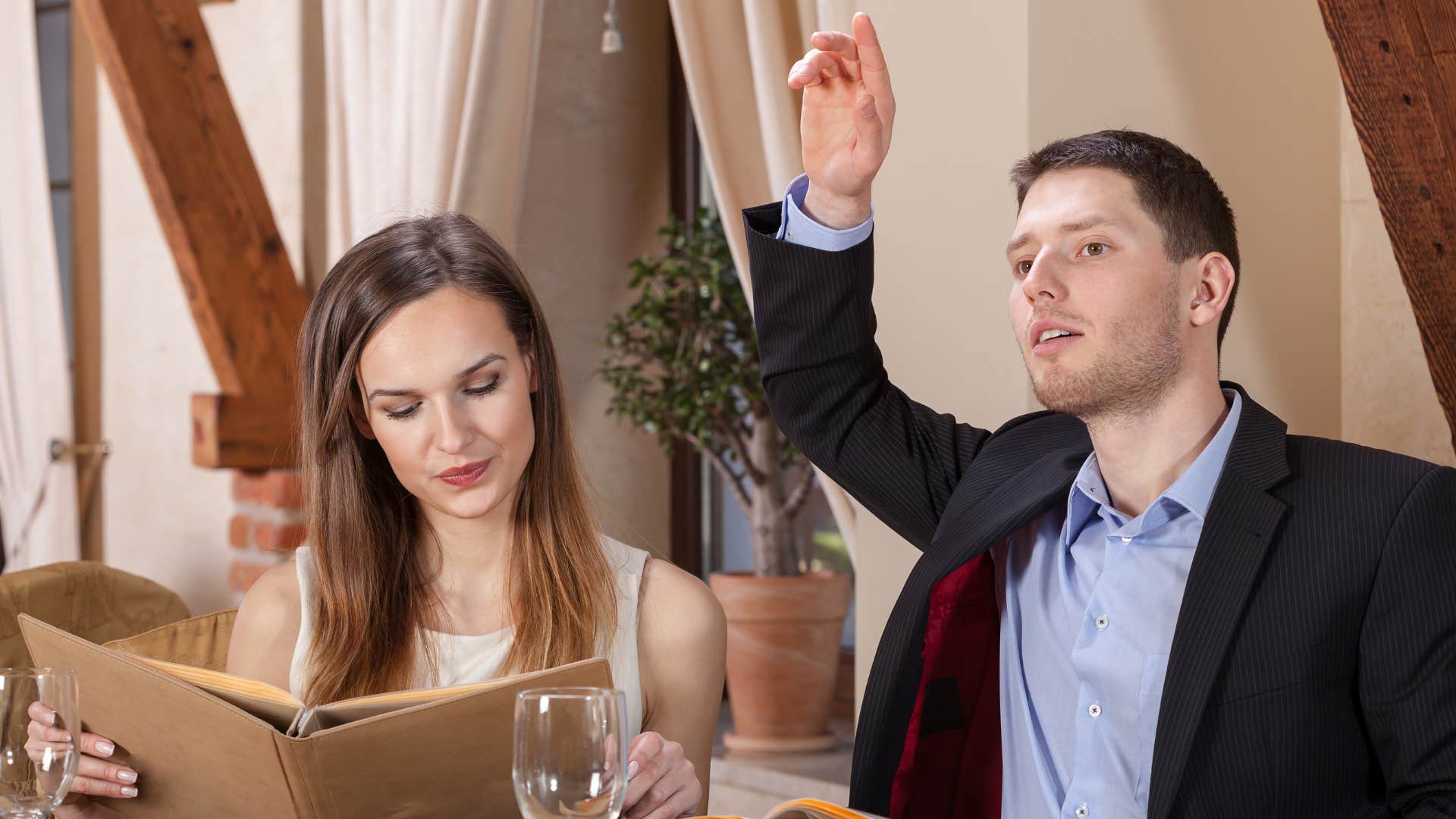 Ground Picture | Shutterstock
Ground Picture | Shutterstock
Snapping fingers or wildly waving to get a server's attention is considered one of the rudest habits that you can have in a restaurant setting. It reduces the interaction to a command rather than a courteous request, making someone look impatient or entitled. This kind of behavior can embarrass dining companions and often leaves a negative impression on both staff and nearby patrons.
People who practice old-fashioned manners understand the importance of treating service staff with respect and dignity. They express appreciation throughout the dining experience because they understand that servers must accommodate multiple tables simultaneously. Patience goes a long way in the dining experience that not many people have.
2. Talking on the phone while ordering
 Bilanol | Shutterstock
Bilanol | Shutterstock
People who have good manners at restaurants never order while talking on the phone simultaneously. It's considered rude to the service member and can cause delays in a line if you are doing multiple things at once. Even using a phone while sitting down is considered rude by the people that you are dining with.
Using a phone while eating dinner can negatively affect your interactions with others at the table. This habit goes beyond rudeness as it breaks the human connection that is at the core of sitting down and having a meal. Those with traditional manners know that good service begins with treating others with the same dignity and respect that you would want them to give you.
3. Not greeting the server
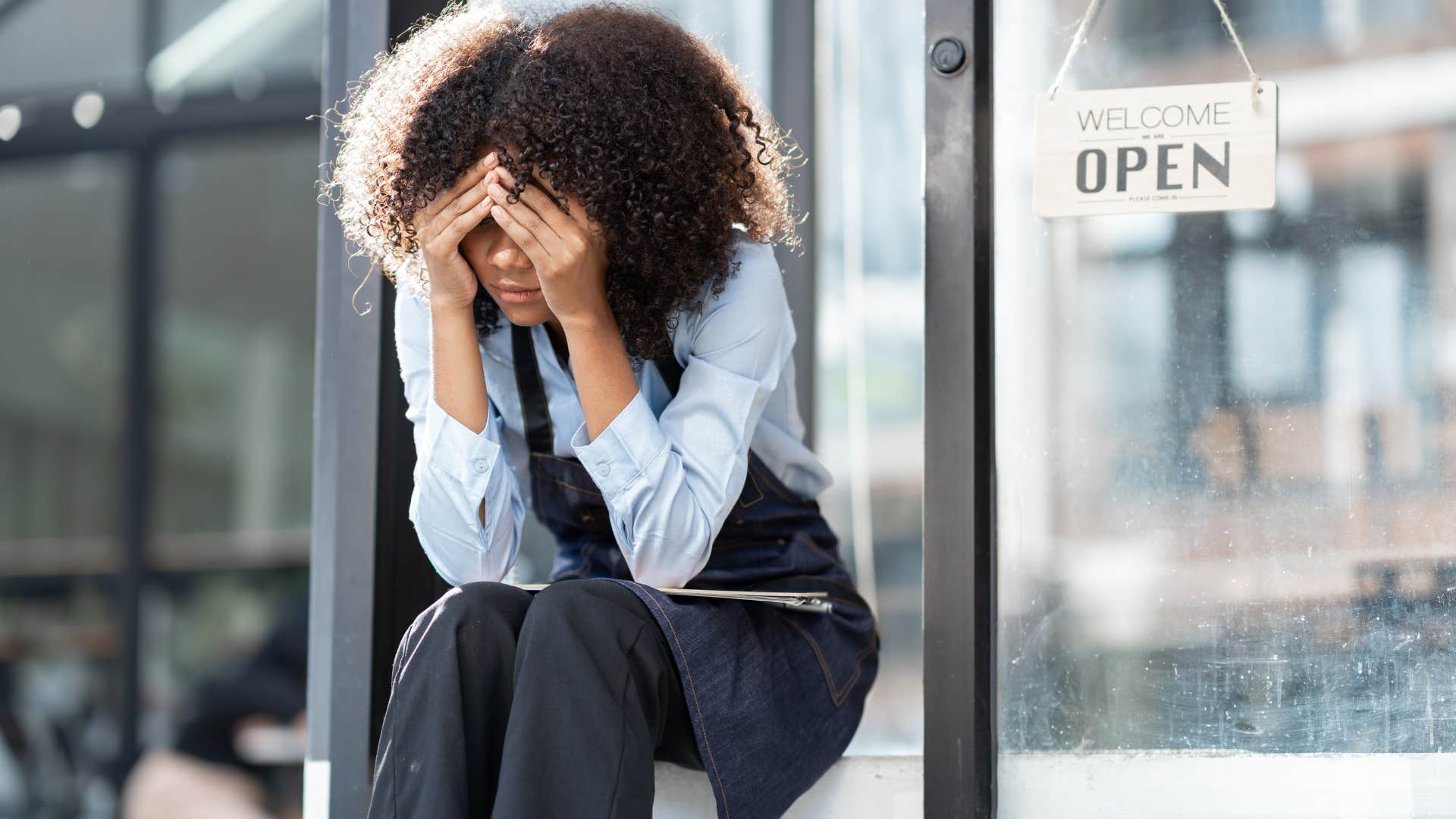 CrizzyStudio | Shutterstock
CrizzyStudio | Shutterstock
Skipping the greeting when you meet your server can come across as rude and dismissive. Servers work hard and often juggle multiple tables and customers simultaneously. Taking a moment to acknowledge them at the start of the meal or when placing your order can show your appreciation for them and their service.
Staff friendliness is the most important aspect of a person's restaurant experience. Being nice to a server means they will likely be kind back to you. Old-fashioned etiquette emphasizes mutual respect and graciousness in all social exchanges. By greeting the server, diners demonstrate humility and kindness, which are qualities that never go out of style.
4. Interrupting or talking over others
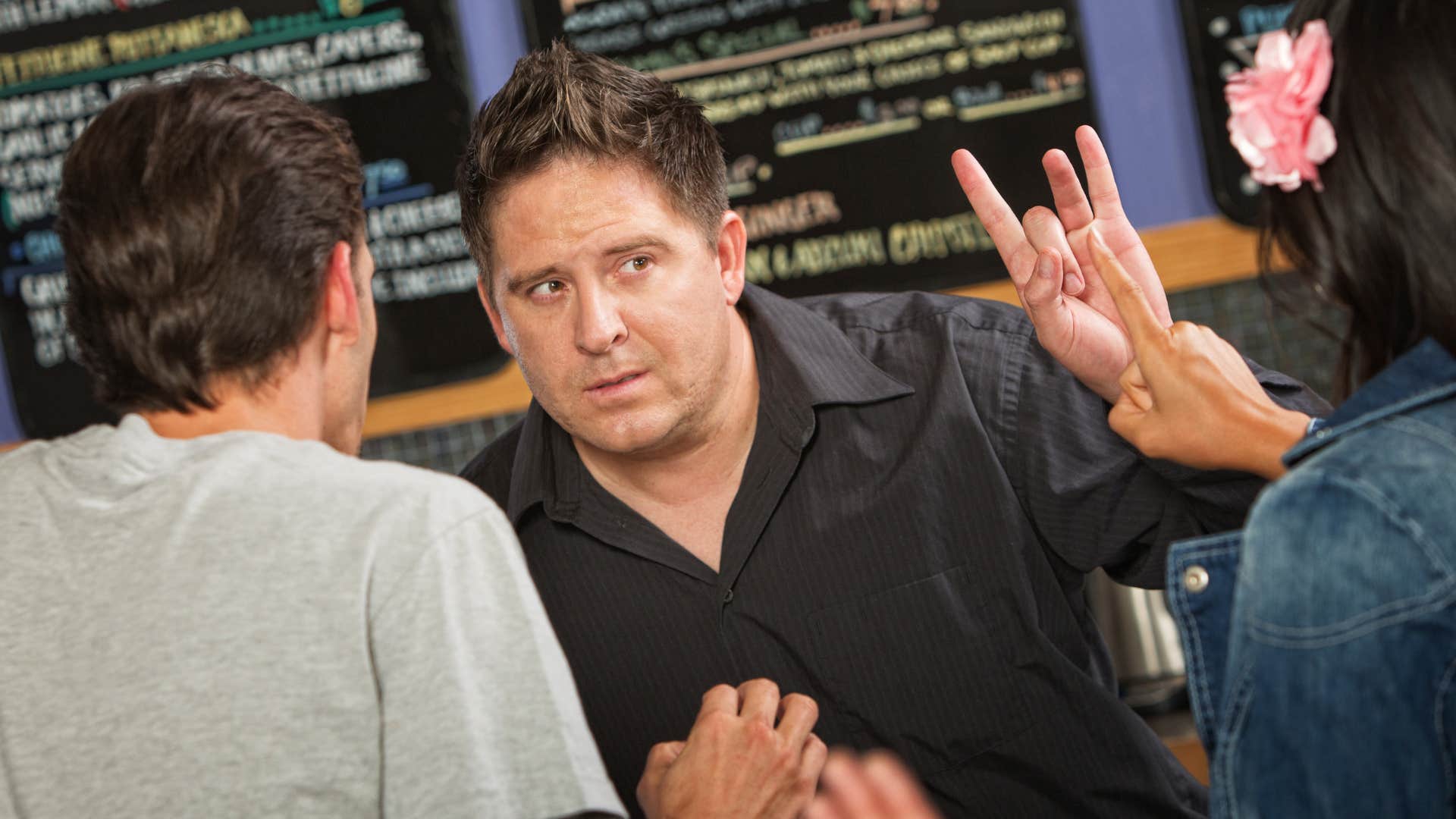 CREATISTA | Shutterstock
CREATISTA | Shutterstock
Interrupting or talking over someone during the ordering process is disrespectful, especially when they are trying to help you. It rushes others and makes them feel unheard, which goes against the traditional values of patience and courtesy. Old-fashioned etiquette teaches that good manners mean making others feel comfortable and valued, even in small interactions, such as placing a food order.
By calmly waiting and speaking only when it's their turn, well-mannered diners help create a more pleasant atmosphere for everyone. Those who would rush cause unnecessary stress in others and the servers who are trying to assist them. No matter how fast-paced our world becomes, this is an old-school manner that we should hold onto.
5. Being indecisive or unprepared
 Zamrznuti tonovi | Shutterstock
Zamrznuti tonovi | Shutterstock
Indecisiveness at the table is seen as inconsiderate in traditional etiquette. Old-fashioned diners know that servers are working a tight schedule and others are waiting for their orders just as much as you are. They don't make staff wait for minutes or even hours to decide what they want to eat. A person wouldn't have stopped in a restaurant if they didn't already have an inkling as to what they wanted to eat.
Holding up lines due to slow ordering can lead other customers to believe that the quality of service is low. Around 65% of customers have abandoned a transaction due to poor service. Preparedness signals confidence and courtesy. Making a clear decision when the time comes shows that you value other people's time and effort.
6. Making excessive or unreasonable substitutions
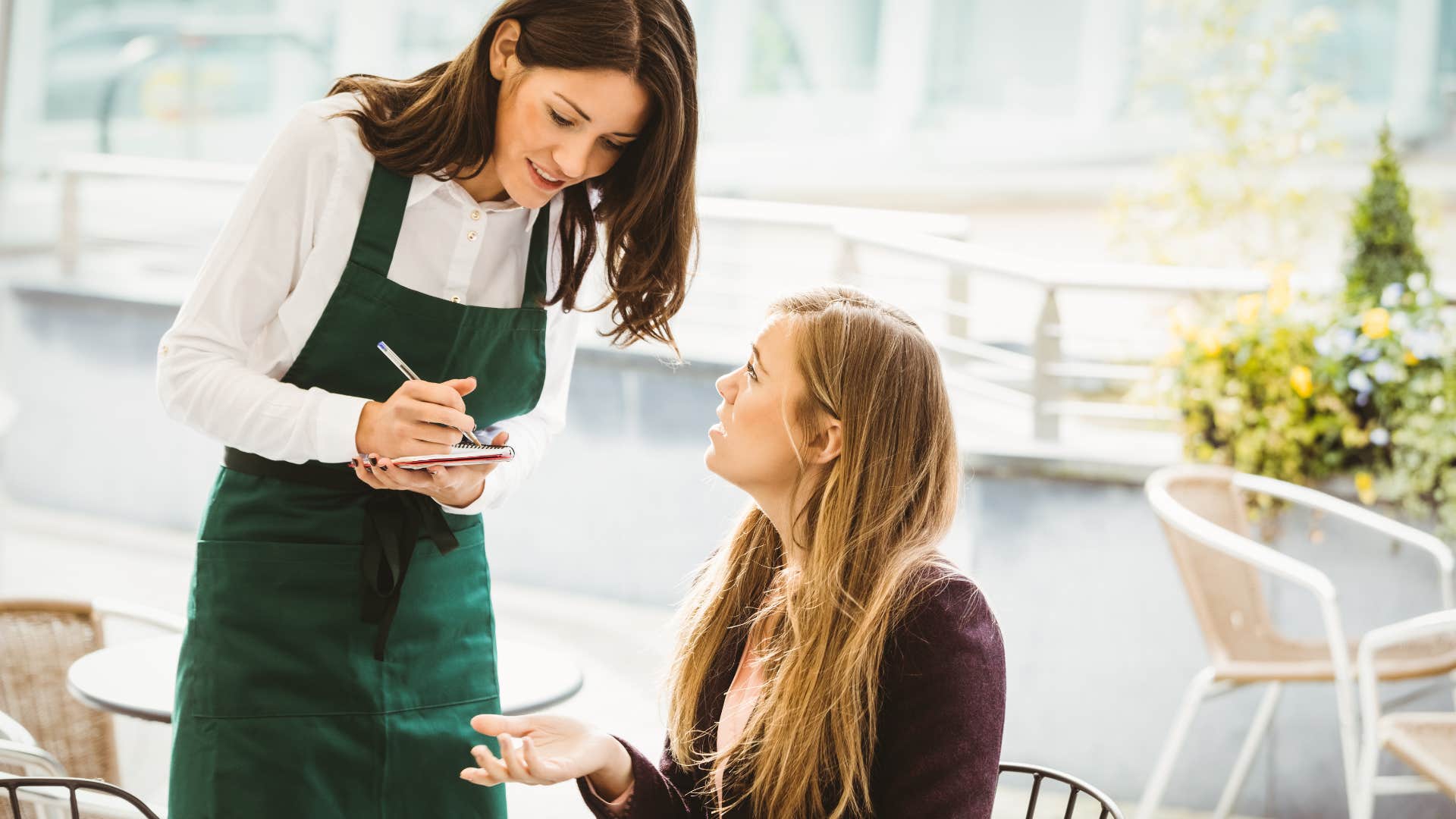 wavebreakmedia | Shutterstock
wavebreakmedia | Shutterstock
People with old-fashioned manners understand that ordering at a restaurant is not just about getting what you want, but it's about respecting the menu. Around 57% of diners avoid making personalized or modified orders when they perceive the restaurant as too busy or understaffed, out of respect for the restaurant's capacity. Overhauling a dish with too many substitutions conveys that the chef's expertise is insufficient.
Even excessive or unreasonable demands can also create unnecessary stress for the kitchen and slow down service for others. Those with traditional manners are mindful of this ripple effect. By keeping their requests simple, they maintain a smooth flow in the restaurant and the kitchen.
7. Using impolite language or tone
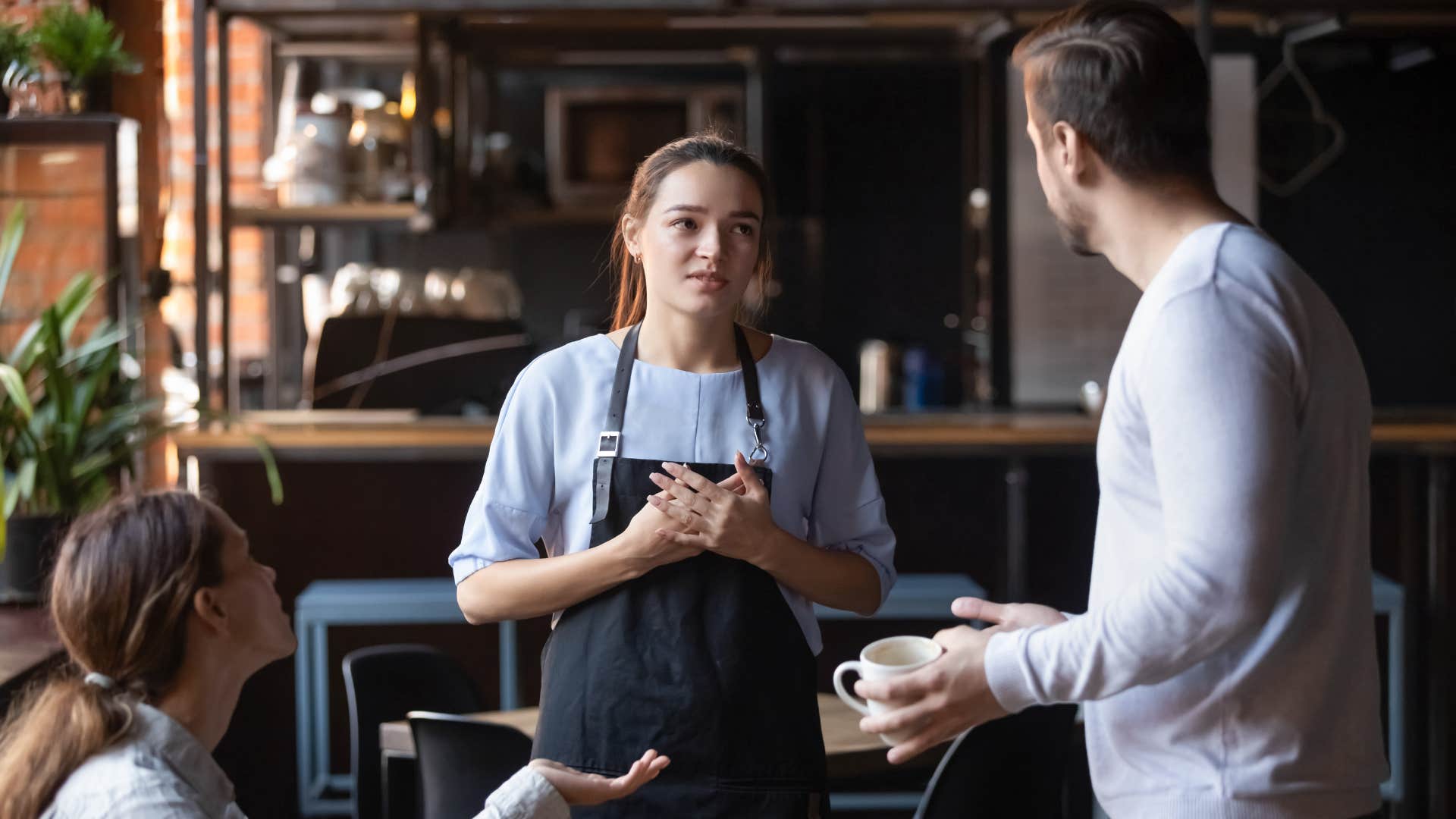 fizkes | Shutterstock
fizkes | Shutterstock
Rudeness, even if unintentional, can come through rushed or dismissive language. Those raised with traditional etiquette are mindful of how they speak to others, especially when serving them food. Being courteous costs nothing, and every interaction is an opportunity to show a little kindness.
For those who were raised with old-fashioned manners, their civility is genuine. They don't raise their voice or make their servers uncomfortable. They use gentle tones and polite behavior to ease the environment.
8. Ignoring the servers recommendations
 BearFotos | Shutterstock
BearFotos | Shutterstock
In many cases, servers are intimately familiar with the menu, daily specials, and what the kitchen does particularly well. When a guest disregards their recommendations, it can be considered inconsiderate, as well as potentially deadly, if those recommendations address allergy specifications. Approximately 34% of individuals with food allergies have experienced a reaction at a restaurant.
Having an allergic reaction because you rushed the server can have dire consequences. People with etiquette are mindful of this and make an effort to hear the server out on what they suggest and what to avoid. Servers are not trying to nag you, but they are trying to suggest good offers and possibly save your life in the process.
9. Speaking to servers without eye contact
 Studio113 | Shutterstock
Studio113 | Shutterstock
A rude habit that some people have is refusing eye contact with their servers. As small as this gesture is, it can be a major sign of disrespect. It can signal impatience, disinterest, or even superiority, all of which clash with the old-fashioned values that people who have manners have.
Making eye contact with a server is a simple yet powerful way to acknowledge their presence and humanity. For people with good manners, this habit sets the tone for a more pleasant dining experience for everyone involved, including the server, who feels more engaged.
10. Failing to say thank you
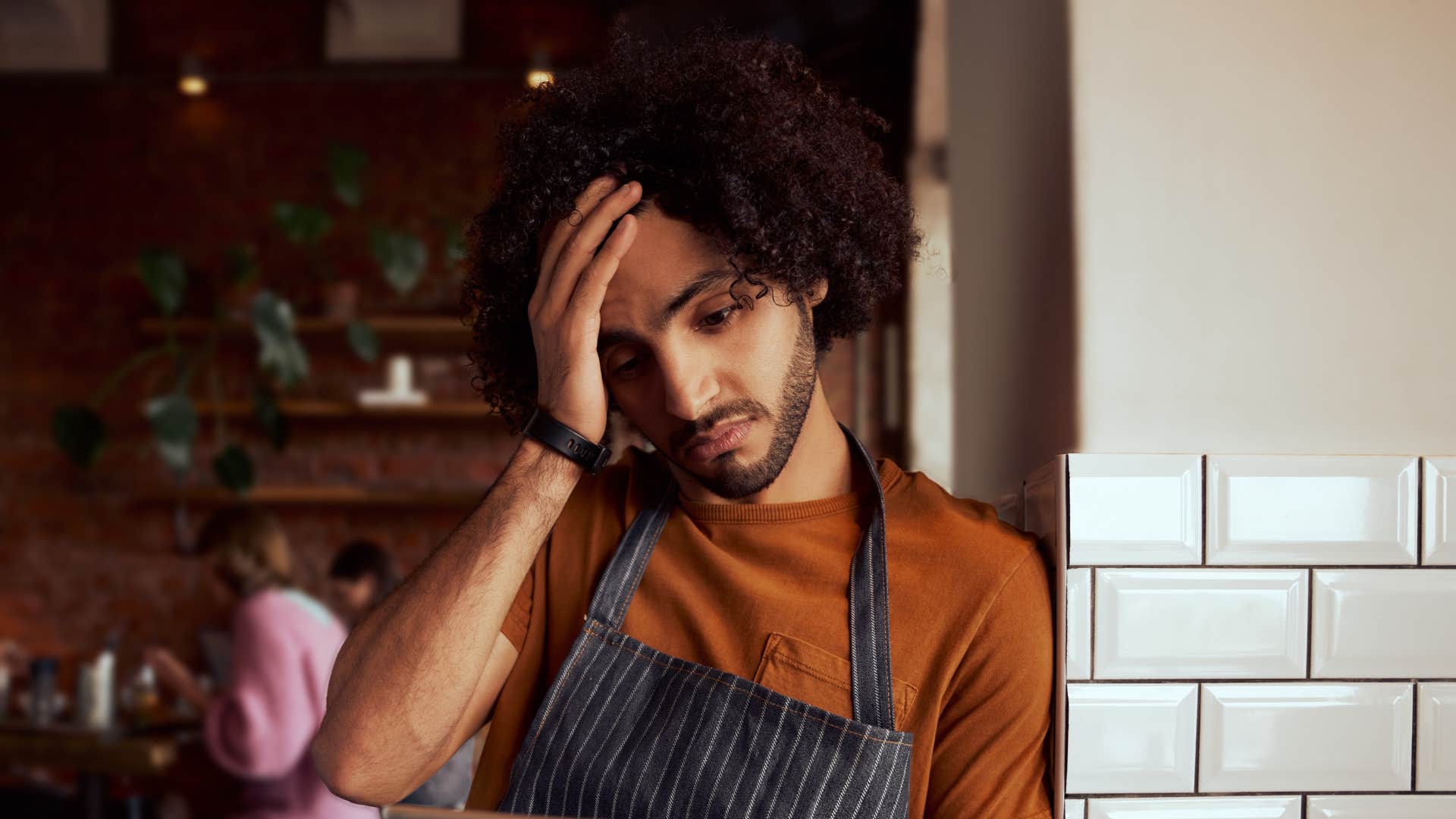 StratfordProductions | Shutterstock
StratfordProductions | Shutterstock
People with old-fashioned manners know the importance of being polite and grateful for the service that they have just received. They thank the server who has worked hard taking care of them for the night, as well as others at the same time. In a busy restaurant, servers are constantly on their feet, juggling multiple tables and requests, so that a simple 'thank you' can brighten their day.
Failing to say thank you can come across as rude or entitled, even if the customer doesn't mean to be. Those who express gratitude and show respect might find it surprising when they are welcomed the next time they visit. Interacting with people in a respectful way and thanking them for their service will make a small dining experience even better.
11. Leaving a mess at the table
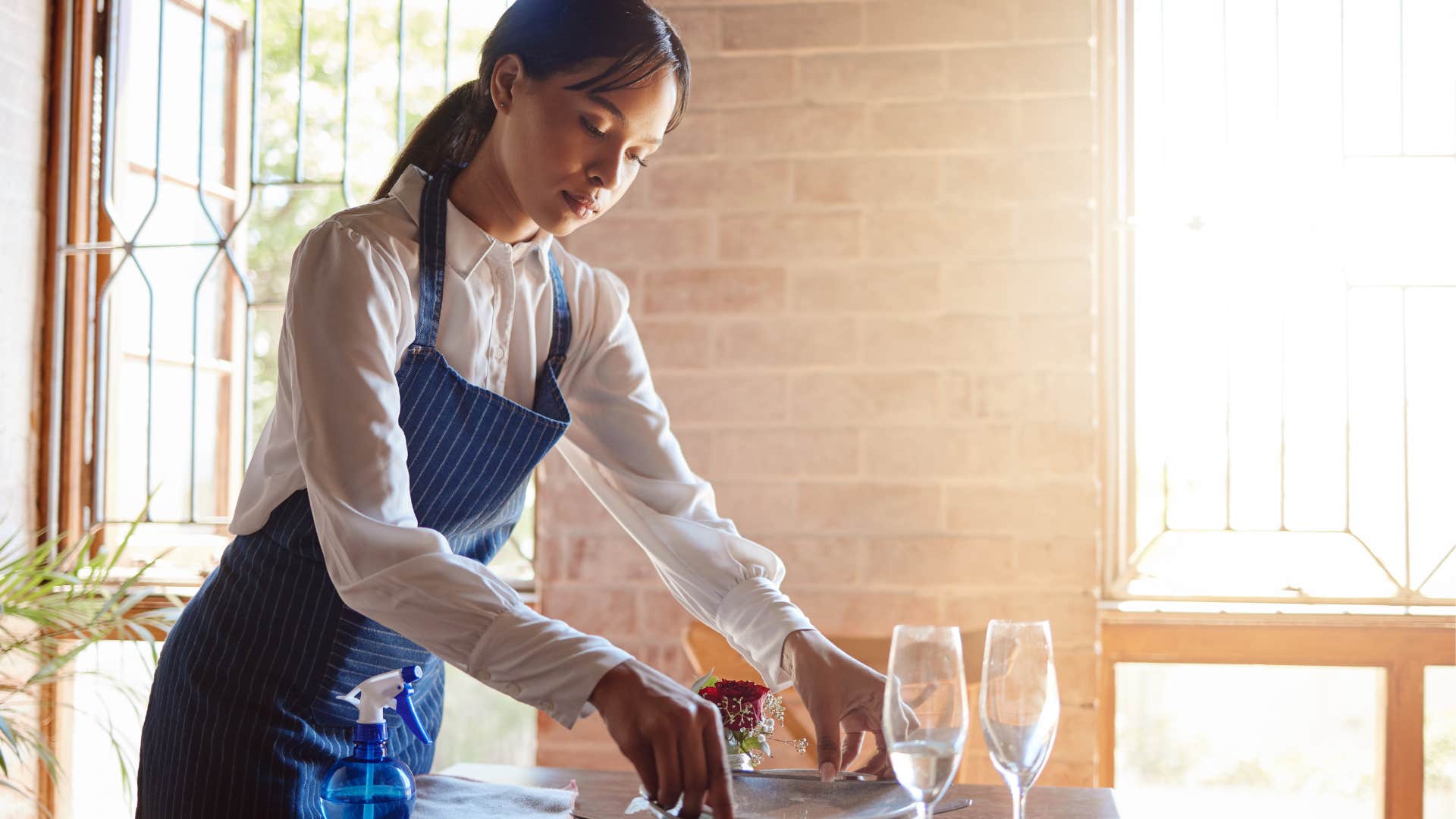 PeopleImages.com | Yuri A | Shutterstock
PeopleImages.com | Yuri A | Shutterstock
Every server has to clean up after their customers in their section, but when a diner makes a bigger mess than usual, it can cause the server extra work and potentially slow down the flow of the restaurant. Leaving scattered crumbs everywhere or heavy spills all over the place is not aesthetically appealing and requires a lot of time to clean. Servers and bus cleaners may even have to divert aisle traffic to avoid other customers from stepping in your mess.
People with old-fashioned manners believe that dining out is similar to eating at home, so they make sure to stay as tidy as they can at their table. They will stack dishes to make it easier for the server to take them to the dishwashers. These habits help maintain a welcoming atmosphere, making the meal enjoyable for all involved.
Sylvia Ojeda is an author who has over a decade of experience writing novels and screenplays. She covers self-help, relationships, culture, and human interest topics.

